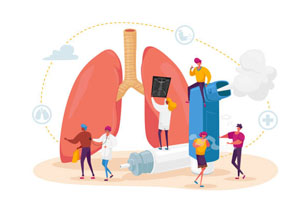Explore the profound impact of stress on physical and mental well-being Discover proven stress-relief techniques, including mindfulness, exercise, nutrition, and holistic approaches Prioritize your health and embrace a stress-free life
What Are the Best Stress-Relief Techniques? Stress has become an increasingly common part of modern life, affecting physical and mental well-being. To address this challenge, it's crucial to explore effective stress-relief techniques. These strategies provide individuals with valuable tools to manage and reduce stress in their daily lives. From mindfulness and exercise to time management and relaxation practices, this article will delve into a comprehensive guide on the best stress-relief techniques. By the end, you'll have a better understanding of how to incorporate these practices into your daily routine, leading to a healthier, more balanced life with reduced stress levels.

Understanding Stress and Its Effects
What is Stress and Why is it Harmful?
Stress is a natural response to various situations in life. It can be defined as the body's way of reacting to a perceived threat or challenge. Understanding stress is essential as it can be harmful in several ways:
- The fight-or-flight response: Explain how the body reacts to stress, releasing hormones like adrenaline.
- Common stressors: Discuss typical stress triggers, such as work pressure, personal issues, or financial concerns.
- Stress and anxiety: Explore the connection between stress and the development of anxiety disorders.
- Long-term consequences: Detail the potential risks of chronic stress, including physical and mental health problems.
How Stress Impacts Physical and Mental Health
Stress can have a profound impact on both physical and mental health. It's crucial to understand these effects:
Physical Effects of Stress
- Stress-related illnesses: Describe how stress can contribute to conditions like heart disease and hypertension.
- Immune system: Explain how stress weakens the immune system, making individuals more susceptible to illness.
- Weight management: Discuss the role of stress in weight gain or loss and its influence on eating habits.
Mental and Emotional Effects of Stress
- Mood and emotional well-being: Talk about how stress affects one's mood and emotional state.
- Mental health disorders: Examine the link between stress and the development or exacerbation of mental health issues.
- Cognitive impact: Discuss how stress can impair concentration and cognitive abilities.
Behavioral Consequences of Stress
- Sleep patterns: Explain how stress disrupts sleep and can lead to sleep disorders.
- Coping mechanisms: Discuss healthy ways to cope with stress and unhealthy behaviors to avoid.
Benefits of Stress Relief
Why Effective Stress Management is Crucial
Effective stress management is crucial for various reasons:
- Improved physical health: Discuss how managing stress can reduce the risk of stress-related health issues like heart disease, high blood pressure, and gastrointestinal problems.
- Enhanced mental well-being: Explain how reducing stress can lead to better mental health, including improved mood, reduced anxiety, and enhanced overall psychological well-being.
- Enhanced productivity: Explore how lower stress levels can lead to increased focus, creativity, and productivity at work or in daily activities.
- Healthy relationships: Discuss how lower stress can contribute to healthier and more fulfilling personal and professional relationships.
Potential Benefits of Stress Relief Techniques
Various stress relief techniques offer a wide range of potential benefits:
Physical Benefits
- Stress reduction for the heart: Discuss how stress relief techniques can lower heart rate and blood pressure.
- Enhanced immune system: Explain how reduced stress can strengthen the body's immune response, making it more resilient against illness.
Mental and Emotional Benefits
- Improved mental clarity: Explore how stress relief techniques can lead to better cognitive function and problem-solving skills.
- Emotional resilience: Discuss how stress relief methods can improve emotional stability and better coping with life's challenges.
Behavioral Benefits
- Healthier lifestyle choices: Explain how stress management can lead to healthier habits like regular exercise and better dietary choices.
- Reduced risky behaviors: Discuss how individuals who manage stress effectively are less likely to engage in unhealthy behaviors like smoking or excessive drinking.
Physical Stress-Relief Techniques
Exercise and Its Role in Stress Reduction
Regular exercise plays a crucial role in stress reduction. It offers a wide range of benefits:
- Release of endorphins: Explain how physical activity triggers the release of endorphins, which are natural mood elevators.
- Reduction in stress hormones: Describe how exercise can lower the levels of stress hormones like cortisol in the body.
- Improved sleep: Discuss how regular physical activity can lead to better sleep quality, reducing stress levels.
- Enhanced physical health: Highlight the connection between exercise, overall health, and stress reduction.
Relaxation Techniques
Various relaxation techniques can help alleviate stress. They include:
Deep Breathing
- Diaphragmatic breathing: Explain the process of deep breathing and its calming effect on the nervous system.
- Stress reduction: Discuss how deep breathing can reduce physiological symptoms of stress, such as elevated heart rate.
- Quick and simple: Highlight that deep breathing exercises can be done anywhere, making them easily accessible for stress relief.
Progressive Muscle Relaxation
- Technique overview: Explain the concept of progressively relaxing muscle groups throughout the body.
- Tension release: Describe how this technique can help individuals release physical tension associated with stress.
- Stress and anxiety reduction: Discuss the efficacy of progressive muscle relaxation in managing stress and anxiety.
The Importance of a Healthy Diet
A well-balanced diet is essential for stress management and overall health:
- Role of nutrition: Explain how proper nutrition can support the body's ability to manage stress.
- Foods that reduce stress: Identify specific foods that are known to have a calming effect, such as complex carbohydrates and foods rich in certain vitamins and minerals.
- Hydration: Stress the importance of staying well-hydrated as dehydration can contribute to stress symptoms.
Impact of Sleep on Stress and Relaxation
Quality sleep is integral to stress management and relaxation:
- Sleep and stress: Discuss the bidirectional relationship between sleep quality and stress levels.
- Sleep hygiene: Explain the importance of good sleep hygiene practices for reducing stress and improving relaxation.
- Effects of stress on sleep: Describe how high stress levels can disrupt sleep patterns and offer strategies for better sleep in the face of stress.
Psychological Stress-Relief Techniques
Mindfulness and Meditation
Mindfulness and meditation are powerful psychological techniques for managing stress:
- Definition of mindfulness: Explain what mindfulness is and how it involves being fully present in the moment.
- Benefits of mindfulness: Discuss the benefits, including reduced stress, improved emotional regulation, and increased focus and awareness.
- Meditation practices: Describe various meditation techniques, such as mindfulness meditation, loving-kindness meditation, and body-scan meditation.
- Practical tips: Offer guidance on how individuals can incorporate mindfulness and meditation into their daily routines.
Cognitive-Behavioral Therapy for Stress Management
Cognitive-Behavioral Therapy (CBT) is an evidence-based approach to stress management:
- Understanding CBT: Explain the principles of CBT, which involve recognizing and changing negative thought patterns and behaviors.
- CBT for stress: Describe how CBT can help individuals identify and challenge stress-inducing thoughts and develop effective coping strategies.
- Working with a therapist: Discuss the benefits of seeking professional CBT help for managing stress and anxiety.
- Self-help techniques: Provide information on self-help CBT tools and resources for stress management.
Creative and Artistic Outlets for Stress Relief
Engaging in creative and artistic activities can be therapeutic for stress relief:
- Art therapy: Explain how creating art can help individuals express and process their emotions, reducing stress and anxiety.
- Music therapy: Discuss the calming and mood-enhancing effects of music and how it can be used as a stress relief tool.
- Writing and journaling: Explore the benefits of writing as a way to release emotions, gain clarity, and reduce stress.
- Creative hobbies: Highlight various creative hobbies like knitting, gardening, or cooking, which can serve as stress-relief activities.
Social and Lifestyle Factors
The Significance of a Strong Support System
A strong support system is crucial for managing stress and maintaining overall well-being:
- Types of support: Explain the different forms of support, including emotional, practical, and informational support.
- Benefits of a support system: Discuss how having a reliable support network can reduce stress, provide comfort, and enhance resilience in challenging times.
- Building and maintaining support: Offer advice on how to establish and nurture a strong support system, including seeking professional help if needed.
- Online and community resources: Mention online forums, support groups, and local community resources available for individuals seeking support.
Time Management and Organization
Effective time management and organization skills can significantly reduce stress:
- Time management strategies: Provide tips on prioritizing tasks, setting goals, and creating to-do lists to better manage time and reduce stress.
- Dealing with procrastination: Discuss how addressing procrastination can help alleviate stress associated with looming deadlines and unfinished tasks.
- Workplace organization: Explain how an organized workspace can enhance productivity and reduce stress in a professional setting.
- Balancing commitments: Offer guidance on how to balance work, personal life, and responsibilities to prevent burnout and reduce stress levels.
Work-Life Balance
Work-life balance is essential for overall well-being and stress management:
- Defining work-life balance: Explain the concept of work-life balance and why it is important for reducing stress and maintaining mental health.
- Setting boundaries: Discuss the importance of setting boundaries between work and personal life to prevent work-related stress from spilling into one's personal life.
- Flexible work arrangements: Explore the benefits of flexible work schedules and telecommuting in achieving a better work-life balance.
- Self-care practices: Highlight the significance of self-care, including hobbies, exercise, and relaxation, in maintaining a healthy work-life balance and managing stress.
Stress Relief in Everyday Life
Incorporating Stress Relief Techniques into Your Daily Routine
Integrating stress relief techniques into your daily routine is essential for maintaining overall well-being:
- Identifying triggers: Discuss the importance of recognizing stress triggers in daily life and understanding your specific stressors.
- Creating a stress relief plan: Offer guidance on developing a personalized stress relief plan that includes strategies like mindfulness, exercise, or deep breathing.
- Consistency is key: Stress the significance of consistent practice for the effectiveness of stress relief techniques.
- Making time for self-care: Emphasize the need to allocate time for self-care activities, even during busy days.
Managing Stress at Work and in Personal Life
Effectively managing stress in both professional and personal life is essential for well-being:
- Workplace stress management: Discuss techniques such as time management, setting boundaries, and seeking support to manage stress at work.
- Dealing with personal stressors: Provide strategies for coping with stressors related to personal life, including relationships, finances, and responsibilities.
- Communication skills: Highlight the importance of open and effective communication in resolving conflicts and managing stress in personal relationships.
- Seeking professional help: Encourage seeking professional guidance when dealing with overwhelming stress and mental health challenges.
Setting Realistic Goals for Stress Reduction
Setting and achieving realistic goals for stress reduction is a crucial step in managing stress:
- Goal identification: Discuss how to identify specific stress reduction goals, such as reducing work-related stress or improving emotional well-being.
- SMART goals: Explain the concept of SMART (Specific, Measurable, Achievable, Relevant, Time-bound) goals and how to apply them to stress reduction strategies.
- Tracking progress: Highlight the importance of monitoring and assessing progress toward stress reduction goals, making necessary adjustments as needed.
- Celebrating achievements: Encourage celebrating small milestones and achievements in stress reduction to maintain motivation and positive momentum.
Frequently Asked Questions (FAQs)
Q1: What are the key benefits of stress relief techniques?
A: Stress relief techniques offer a range of benefits, including improved physical health by reducing the risk of stress-related illnesses, enhanced mental well-being with reduced anxiety and better mood, increased productivity, and healthier personal and professional relationships.
Q2: How can I incorporate stress relief techniques into my daily routine?
A: You can incorporate stress relief techniques into your daily routine by identifying your stress triggers, creating a personalized stress relief plan, practicing techniques consistently, and making time for self-care activities even on busy days.
Q3: What are some strategies for managing stress at work and in personal life?
A: To manage stress at work, you can use techniques such as time management, setting boundaries, and seeking support. For personal life, coping with stressors related to relationships, finances, and responsibilities is essential. Effective communication and seeking professional help when needed are also valuable strategies.
Q4: How do I set realistic goals for stress reduction?
A: Setting realistic goals for stress reduction involves identifying specific stress reduction goals, using SMART (Specific, Measurable, Achievable, Relevant, Time-bound) criteria, tracking progress, and celebrating achievements to maintain motivation.
Q5: Why is a strong support system significant for managing stress?
A: A strong support system is essential for managing stress as it provides emotional, practical, and informational support. It can help reduce stress, offer comfort, and enhance resilience. Establishing and nurturing a support system is crucial for overall well-being.








